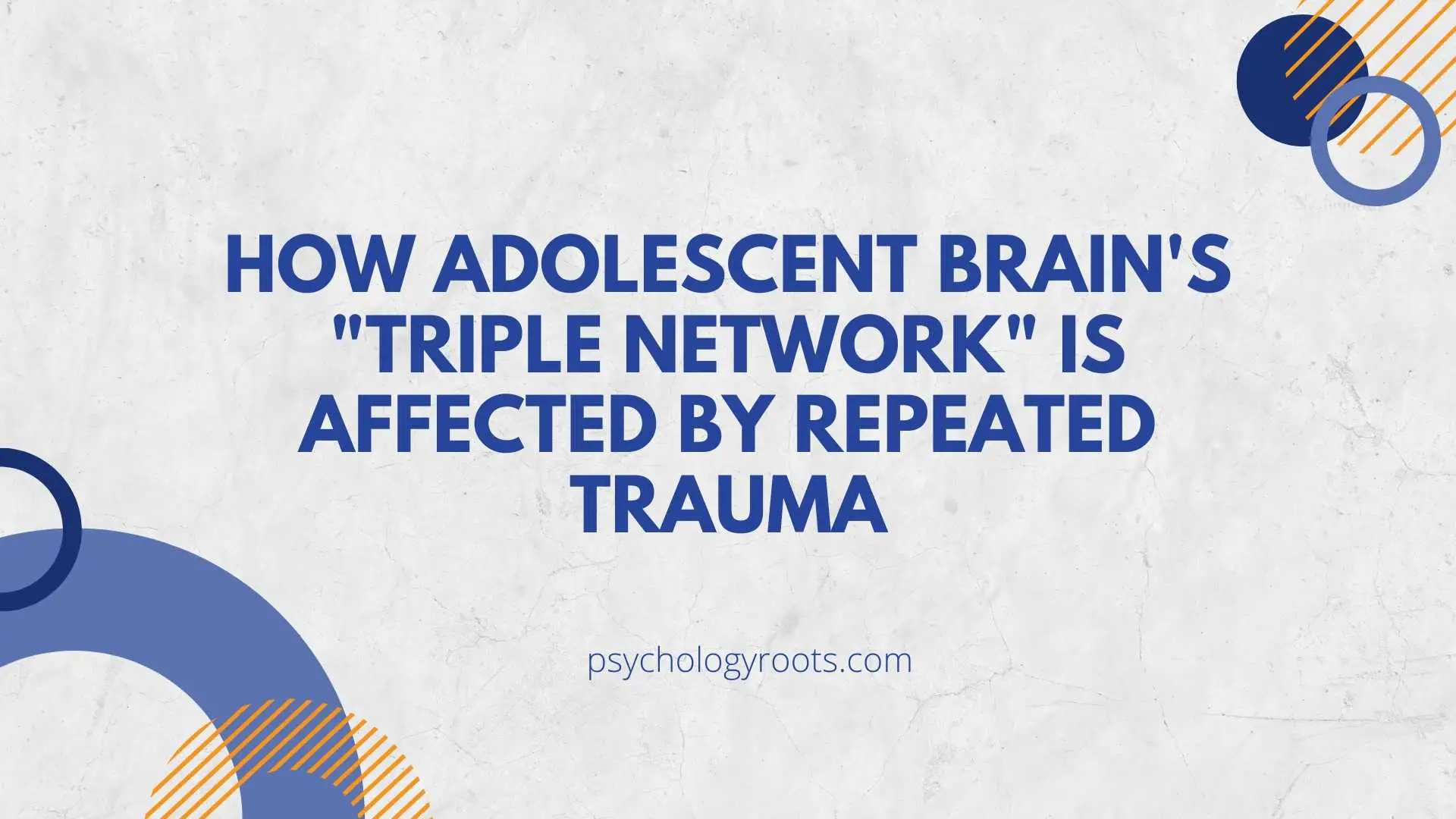Table of Contents
How Adolescent Brain’s “Triple Network” Is Affected by Repeated Trauma
Here in this post, we are discussing and learning about “How Adolescent Brain’s “Triple Network” Is Affected by Repeated Trauma”. You can read more about psychology-related material on our website. Keep visiting Psychology Roots.
The neurodevelopmental impacts on brain circuitry that might result from stress and trauma in adolescence can have long-term health ramifications, such as mental illnesses. Studying the impact of acute stress and “polyvicitimization,” or recurrent traumas, on three brain networks in teenagers, Elsevier has published a new research in Biological Psychiatry: Cognitive Neuroscience and Neuroimaging.
According to lead author and PhD student Rachel Corr of the University of North Carolina at Chapel Hill in North Carolina, USA, “while negative health outcomes have been associated separately with early life victimization exposure, disrupted adolescent neurodevelopment, and aberrant neural network responses to acute stress, no previous research had examined how these factors are related to one another.” An effort was made to bring together all the pieces of the jigsaw using this research.

How Adolescent Brain’s Triple Network Is Affected by Repeated Trauma
If you’ve ever wondered how “acute stress” affects the brain’s “triple networks,” Dr. Corr and his colleagues set out to answer that question in a study published this month in the Journal of Neuroscience. They all work together to regulate cognition, emotion, perception and social interaction. Psychiatric illnesses have long been linked to abnormal activity in and between the triple networks.
79 children, ranging in age from 9 to 16, with varying degrees of polyvictimization, had their functional connectivity (FC) assessed by the researchers before this study. Participants conducted a task while being scanned using an fMRI machine in order to determine the impact of stress on brain connections. Participants were informed that their responses would not be recorded in the control condition, so they worked at their own speed while in the stress condition, where they were forced to work rapidly and received negative feedback about their performance at every step of the way.
People who were exposed to high levels of acute stress have changed functional connectivity between the three major brain networks in their brains. There was increased FC between the default mode and central executive networks, but there was reduced FC between the salience network and the other two networks, according to the study’s results. The insula, a brain area linked with inwardly directed focus, may be a mediating factor in the observed alterations in FC, according to the scientists.
Furthermore, the researchers were interested in determining how polyvictimization, in which teenagers are subjected to a variety of kinds of abuse, affects their nervous system’s stress response. They may learn more about the brain’s response to recurrent trauma if they looked at polyvictimization. There were larger FC decreases across the salience and default mode networks as well as in particular the insula in those who had been victims of polyvictimization. As a result of recurrent trauma, the brain may have evolved to become less responsive to stressful situations. Neurodevelopmental impacts of trauma may help researchers better understand the psychiatric implications of trauma.
This research shows how repeated trauma can cause a maladaptive response to acute stress in important functional brain networks and reveals a possible mechanism by which multiple early life stressors can increase neural vulnerability to stress and the associated liability for future mental health problems, according to Cameron Carter, MD, Editor of Biological Psychiatry: Cognitive Neuroscience and Neuroimaging.
Summary
Stress and trauma in adolescence can have long-term health ramifications, such as mental illnesses. This study studied the impact of acute stress and “polyvicitimization,” or recurrent traumas, on three brain networks in teenagers. 79 children, ranging in age from 9 to 16, with varying degrees of polyvictimization were assessed. People exposed to high levels of acute stress have changed functional connectivity between the three major brain networks in their brains. The insula, a brain area linked with inwardly directed focus, may be a mediating factor. Polyvictimization, in which teenagers are subjected to a variety of kinds of abuse, affects their nervous system’s stress response.
Help Us Improve This Article
Have you discovered an inaccuracy? We put out great effort to give accurate and scientifically trustworthy information to our readers. Please notify us if you discover any typographical or grammatical errors.
Make a comment. We acknowledge and appreciate your efforts.
If you have any scale or any material related to psychology kindly share it with us at psychologyroots@gmail.com. We help others on behalf of you.